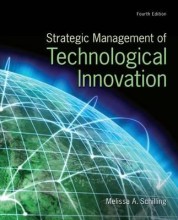Solving Problems: Reasoning and intelligence
20 important questions on Solving Problems: Reasoning and intelligence
What is our capacity to reason considered and how many types of reasoning are there?
Why are analogies called the mother of invention by the Wright Brothers and what do they do?
What is the Ravens progressive matrix test and how was an anology test created to suit Children by Keith Holyoak
In the experiment of Keith Holyoak the children are told a story of a genie and given several items to solve a puzzle. The more the analogies are similar to the story the easier it is to solve the puzzle, the lesser the analogies were similar they struggled with solving it.
- Higher grades + faster learning
- Never study anything twice
- 100% sure, 100% understanding
How can an analogy be misleading and what is the neurological basis of analogical reasoning?
During an fmRi research by susan it was noticed that during analogical reasoning there's usage of multiple areas of the prefrontal cortex compared to semantical where the only the anterior inferior left prefrontal cortex was activated
What are the five items teachers can do to support students in making analogical comparisons, according to Michael Vendetti?
- Provide students with opportunities to make comparisons between newly learned concepts and previously learned ones.
- Present source and target analogies simultaneously so that the student may visualize ways in which they are related.
- Provide additional cues such as gestures that move between the two contexts being compared in order to highlight analogical mappings.
- Highlight both the similarities and difference between sources and targets. If the difference can lead to an incorrect inference indicate explicitly where the analogy breaks down
- Use relational language to facilitate attention to shared relationships
Why is induction called hypothesis construction and why can reasoning by analogies be called induction?
Inductive reasoning, is usually fast thinking based by analogies because we search for similarities in our past experiences to see if they correlate with the experience now
What are the three possible types of Bias used in reasoning?
In the availability bias we tend to hold too much worth on the information we have available to us and don't hold research strong that we don't have available to us.
In the confirmation bias we tend to try to prove our theories instead of disprove our theories and see if people agree with us instead of disagree.
In the predictable world bias we try to make sense of the world even though there's none available. We try to imagine we can guess the odds in things.
How are false inferences made from the availability bias and the predictable world bias?:
The predictable world bias is much used by compulsive gamblers who think they have the ability to guess when correctly when it's which colour or number.
How are false inferences made from the availability bias and the predictable world bias?:
The predictable world bias is much used by compulsive gamblers who think they have the ability to guess when correctly when it's which colour or number.
What is the difference between maximising and matching in gambling (the predictable world bias) and who will maximise the most and how does this work in rats?
People with high IQ maximise the most, usually for different reasons. They understand there's no pattern.
Rats who are shown the same situation also tend to choose grene 2/3ds of the time, not by intelligence but by knowing they're not smart enough to find the pattern.
What are two ways scientists have demonstrated confirmation bias and how does this correlate with IQ
Wason did an experiment with sequencing numbers & Skov and sherman did an experiment with asking people to interview others.
In Skov & Sherman people only try to confirm a rule or to make things affirmative whilst in Wason study people try to generate sequences that confirm the rule rather than disprove.
What is deductive reasoning called and how is this demonstrated by series problems?
In a series problem you get multiple sentences where there's a problem you have to solve with the major premise/propositions and minor premise and see if the statement is correct or not or whether it's not conclusive.
How does prior knowledge influence deductive reason negatively and how does it influence Wason's selection task?
In Wasons selection task the rule was "If a card has a vowel on one side than it must have an even number on the other side" the clients got to choose two cards that would confirm this rule, most had trouble with this task with only 10% getting it right (A7)
How did Cosmides and Tooby simplify Wasons selecton task and how does this use deontic reasoning?
Cosmides and Tooby simplied Wasons selection task by instead of using numbers and vowels, using words such as beer, coke, 16 year old and 25 year old, they had to choose two cards that would confirm the rule (beer and 16 year old)
How did Karl Duncker use the candle problem as an insight problem and how did Barris and Davis show the design stance (functional fixedness in his experiment)?
In Barris and Davis, they showed that children starting from 1 year old, had a functional fixedness of the spoon and held it at the long end, whilst children correctly used the novel item and holding it at the round end 60% of the time.
How does the incubation period help us to solve problems and how does the broaden and build theory help us with solving problems?
The broaden and build theory states that when we have a positive state of mind, like after watching a comedy film, it's much easier to fix an insight problem. Creativity helps a lot with insight problems
How do westerners categorise items, and how is this different from how unschooled Uzbek peasants think?
When asked of westerners what doesnt fix, axe, log, shovel, saw they'd choose log because it's not a tool, yet uzbek peasants choose shovel, because all other items could be used on the log.
How does the study of Michael cole with Kpelle people show that difference in reasoning may be of preference instead of ability and what happened to people studying and taking the LSAT test?
The study of Michael Cole the kpelle in Nigeria, were instructed to sort items into taxonomic groups, they would fail and sort by function every single time until they were given the instruction to sort how stupid people do and that's when they chose taxonomic sorting.
What is the difference between east and western thinking and from what age is this shown by the frame line test?
Westerners have a focused thinking, remembering unique and individual properties whilst Eastern thinking has a more holistic thinking and and remembers the whole scene and the relationship between objects.
How did the difference between east & west thinking came about and why is it not genetic?
It's largely based on the different philosophies that originated in the past, where the west was influenced by greek philosophy and the east was influenced by Asian philosophies such as Confucianism.
The question on the page originate from the summary of the following study material:
- A unique study and practice tool
- Never study anything twice again
- Get the grades you hope for
- 100% sure, 100% understanding






























